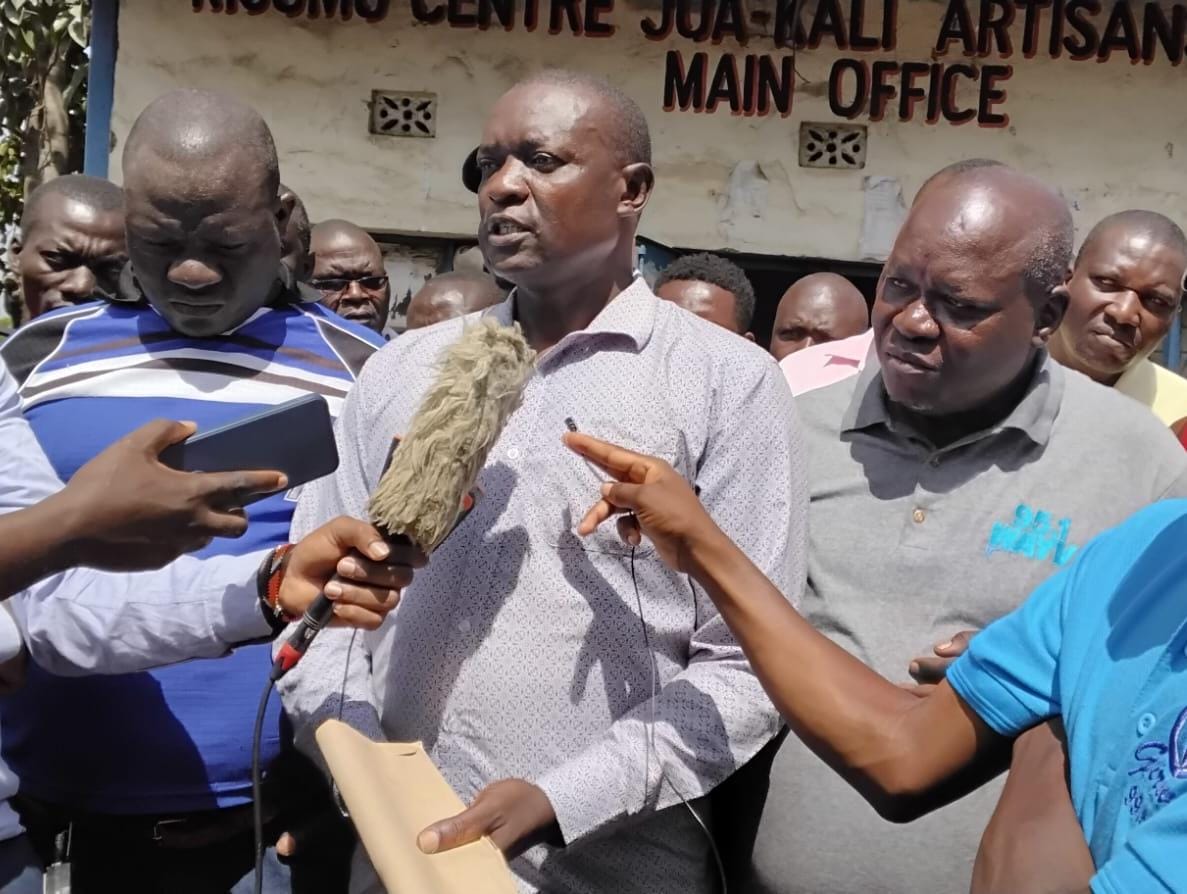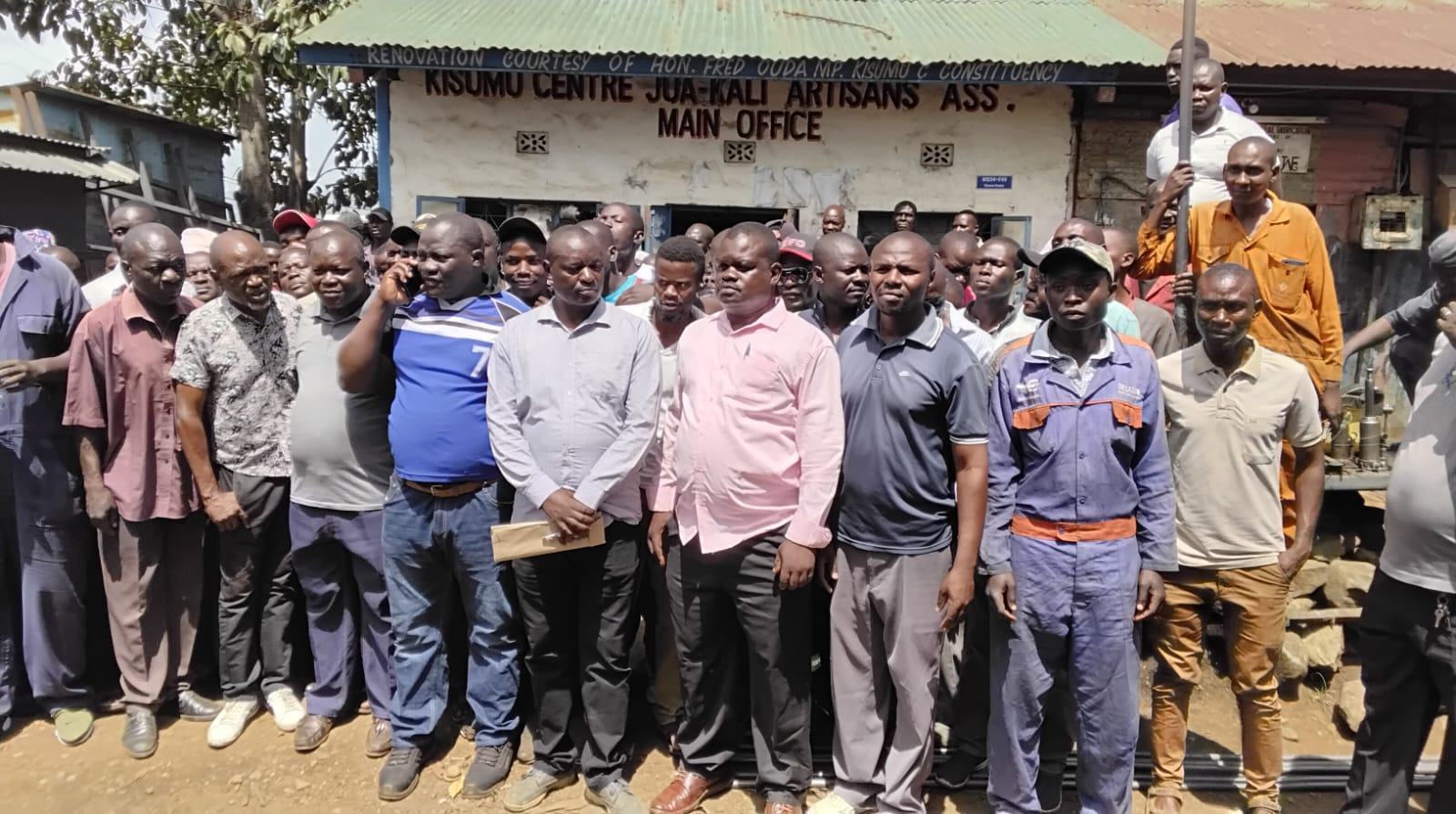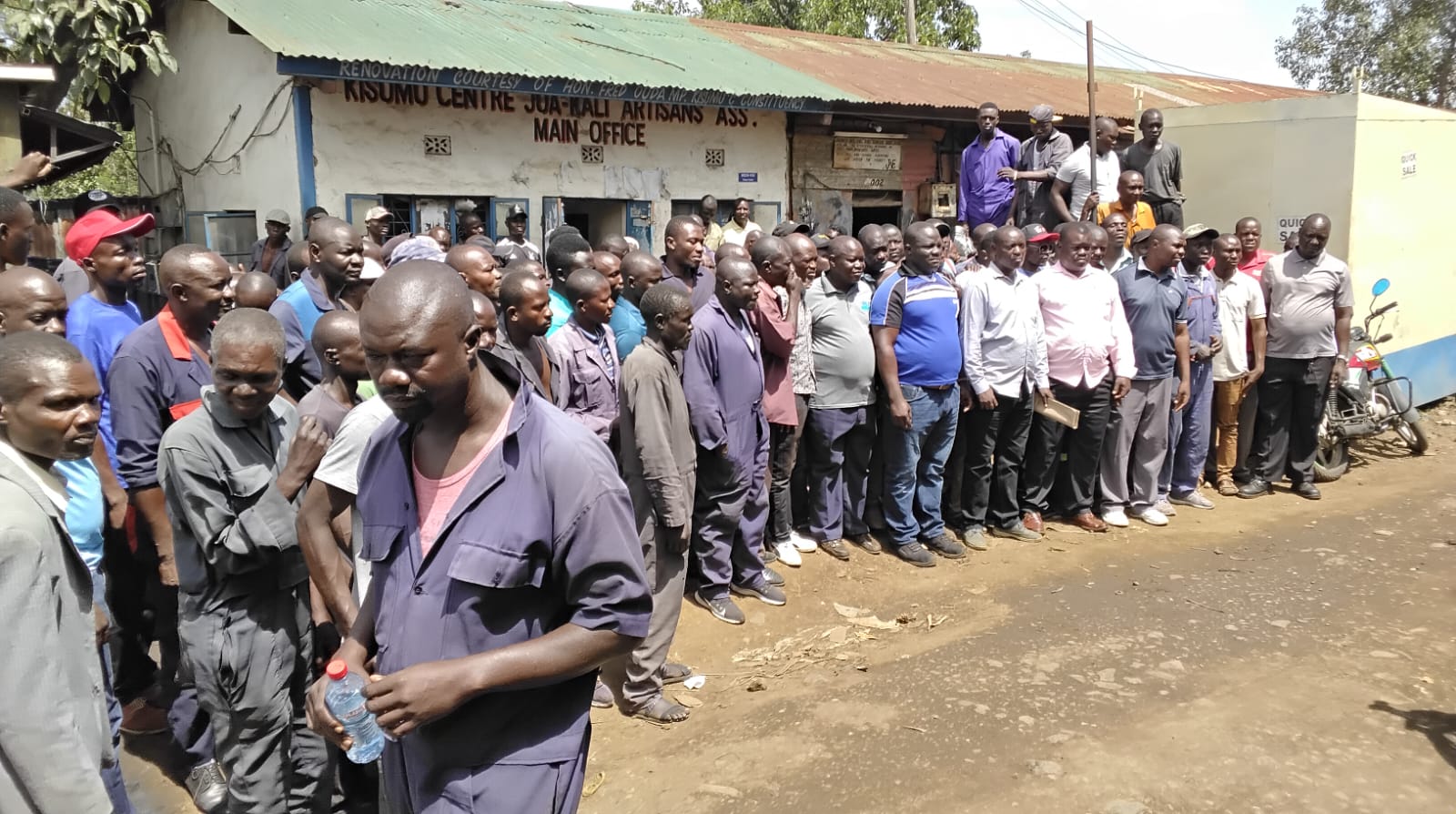

More than 38,000 jua kali artisans in Kisumu are staring at possible displacement after the High Court ruled that a piece of land they have occupied for decades legally belongs to the Kenya Railways Corporation.
Delivering judgment, Environment and Land Court Judge Samson Okong’o brought to an end a six-year battle over the 8.4-acre property.
The parcel, Kisumu Municipality Block 6/517, was allocated to artisans in 1986 by then President Daniel Moi.
However, it was found to have been allocated without the necessary approval from KRC, which originally owned the land.
The decision has unsettled members of the jua kali community, who say they stand to lose not only their workshops and investments but also a major hub of informal employment that has sustained thousands of families in the city.
David Odanga, secretary general of the Kisumu Central Jua Kali Artisans Association, expressed disappointment, insisting the group has valid documents confirming their ownership.
“We received a 99-year lease in 1994, renewed in 2016 and we have consistently paid rent and county rates amounting to millions of shillings,” Odanga said.
“Our only intention has been to develop this land and provide livelihoods for our people.”
The dispute dates back to 2019, when Kenya Railways, in partnership with the county government, began constructing the Uhuru Market on part of the land.
The artisans filed Kisumu ELC Case No 59 of 2019 to stop the project, arguing it was an encroachment.
The case was later consolidated with another suit, ELC No 8 of 2020, filed by KRC, prolonging the legal wrangle.
Odanga said the ruling now puts at risk years of investment and innovation within the Nyayo Sheds, a space that has served as the backbone of Kisumu’s informal manufacturing sector.
“Billions of shillings have been invested here over the last four decades. Even government initiatives like the Kisumu Central Constituency Industrial Development Centre, renovated for about Sh3.5 million, sit on this land,” he said.
Beyond the economic impact, the decision threatens a vital training ground for the youth.


“Thousands of young people have learned technical skills here and started their own businesses. Losing this space would not only affect livelihoods but also cripple local skills development,” he noted.
Despite the setback, Odanga said the artisans will pursue all legal options available to them, including filing an appeal.
“We respect the judgement, but we also believe in the right to appeal. We are open to dialogue with the government to find a lasting and fair solution,” he stated.
He urged President William Ruto to intervene, saying the artisans’ livelihoods should not be destroyed in the name of development.
“We are thousands of hustlers who have called this place home for over 40 years. We believe the President can help protect our businesses and the spirit of jua kali,” Odanga appealed.
The disputed parcel, locally known as the Nyayo Sheds, has been instrumental in supporting small-scale artisans since the 1980s.
From an initial membership of 200 artisans, the area now accommodates more than 38,000, making it one of the largest informal industrial clusters in the region.
With the court ruling now in place, the artisans are expected to meet soon to chart their next course of action, as they hold onto hope for a resolution that preserves their livelihoods and the legacy of Kisumu’s Jua Kali industry.

















